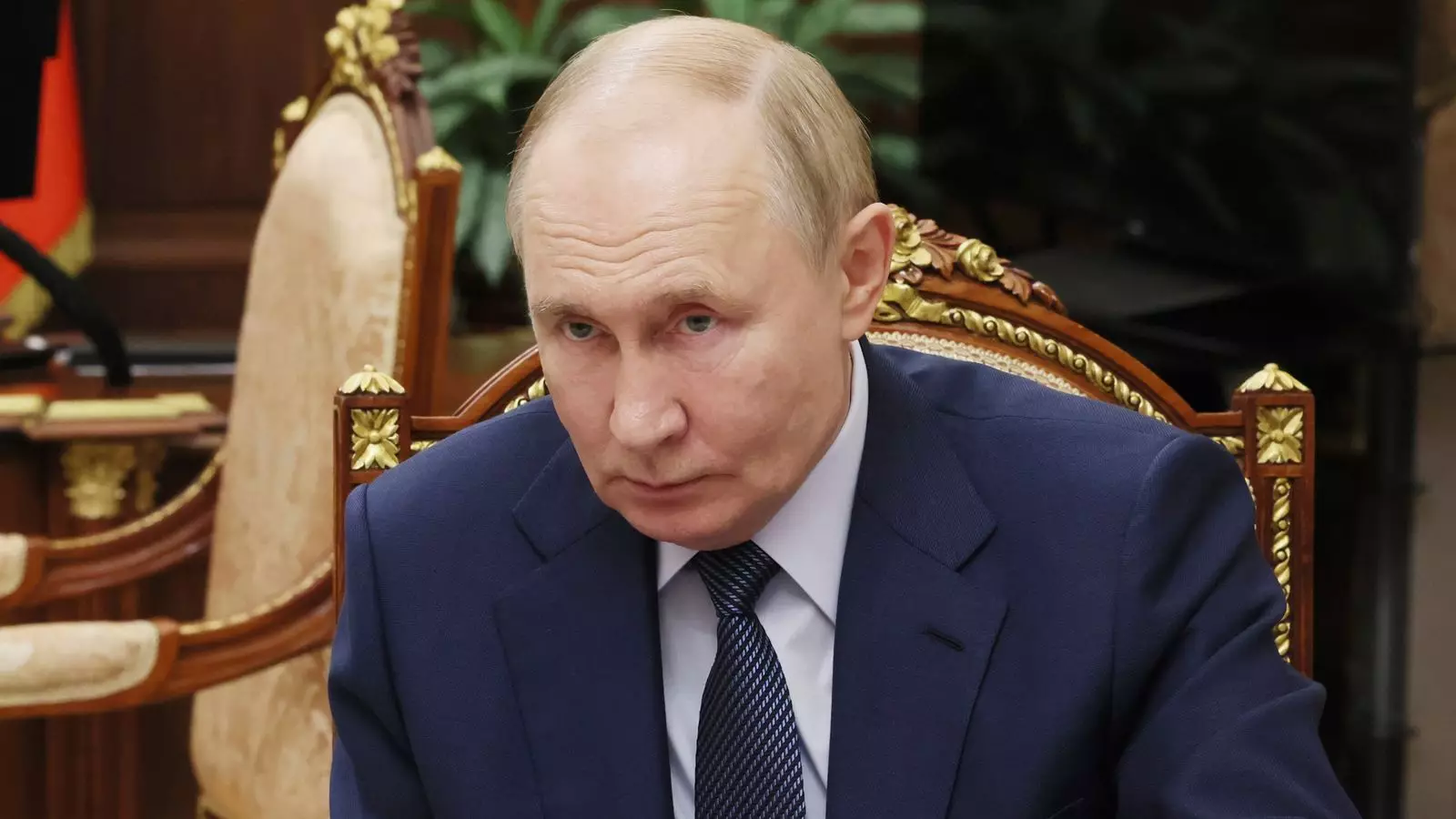In a robust response to ongoing aggression from Russia, the UK government has unveiled a new sanctions regime that takes aim at Russian oligarchs connected to the Kremlin. Coinciding with the third anniversary of Russia’s invasion of Ukraine, this initiative seeks to tighten immigration controls surrounding prominent figures who have benefitted from their affiliations with the Russian state. The measure highlights the UK’s commitment to bolstering its national security and reaffirms its stance against the ongoing conflict in Ukraine.
The Home Office has made it clear that the newly announced measures are designed to bar entry to individuals who play a significant role in supporting President Vladimir Putin’s administration. This includes those who have accrued their wealth through the state or enjoy privileged access to high-ranking officials. The intention is not merely punitive but also preventive, as these “elites” are perceived to pose a direct threat to British interests and values. According to Security Minister Dan Jarvis, the UK must utilize all available tools to safeguard its national security from the menace of Russian oligarchs, who are deemed responsible for funding the war in Ukraine at the expense of their fellow citizens.
By imposing stricter travel restrictions, the UK aims to undermine the financial and social networks that allow Kremlin-linked elites to thrive. The government asserts that these measures are necessitated by the oligarchs’ tendency to criticize British values publicly while secretly indulging in the benefits afforded by living in the UK. Through these sanctions, the UK aims to dismantle the intersection of wealth and political power that fuels the Kremlin’s aggressive foreign policy.
The lasting implications of these sanctions are manifold. They extend beyond mere travel restrictions; they aim to corral the financial resources that Russian oligarchs have accumulated through their ties with the state. The measures are part of a larger strategy to disrupt money laundering operations that facilitate Putin’s ambitions. For instance, the UK’s National Crime Agency (NCA) recently disrupted a major money laundering network that was allegedly facilitating the Kremlin’s espionage activities.
The timing of the sanctions draws attention to ongoing geopolitical tensions and the necessity for a unified stand against Russian aggression. Simultaneously, discussions have been reported involving US officials and Russian counterparts concerning the future of Ukraine. These conversations highlight the complex web of diplomacy taking place behind the scenes, yet they underscore the exclusion of Ukraine and European allies from these pivotal negotiations, which raises concerns regarding the legitimacy and acceptance of any resulting agreements.
Ukrainian President Volodymyr Zelenskyy’s stance is unwavering: any peace settlement must include Ukraine’s participation or it will not be entertained. This notion finds support from UK opposition leader Sir Keir Starmer, emphasizing the significance of empowering Ukraine in any discussions affecting its future. The existence of sanctions against oligarchs serves to bolster this perspective and affirms that external negotiations cannot eclipse Ukraine’s sovereignty.
The UK has previously imposed a series of sanctions against Russian oligarchs since the onset of the invasion, including extensive financial penalties and asset freezes. The latest measures symbolize an escalation of these efforts. As we move forward, an announcement from the Foreign Office is expected to unveil additional sanction packages designed to further isolate Russia economically and politically.
As the situation evolves, the international community must remain vigilant and proactive. The implications of these oligarchs’ actions extend far beyond the realm of politics; they involve moral responsibilities towards the Ukrainian population, who suffer the most from Kremlin policies. The commitment from the UK to address this issue symbolizes a necessary perspective within broader Western efforts to resist tyranny and aggression on European soil.
The UK’s decision to impose sanctions on Kremlin-linked elites exemplifies a significant step in reinforcing national security while simultaneously standing in solidarity with Ukraine. As countries worldwide respond to the repercussions of the conflict, it becomes essential for global leaders to remain devoted to the democratic values that underpin their societies and to ensure that accountability is upheld even in the face of such dire circumstances.


Leave a Reply